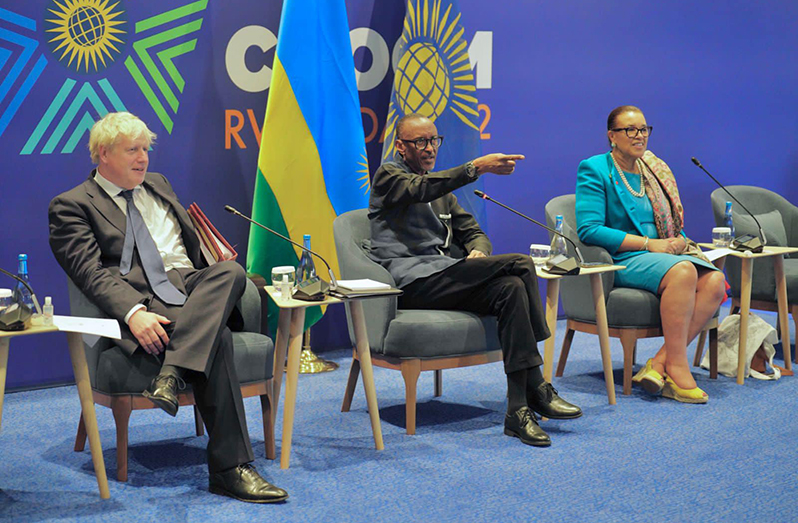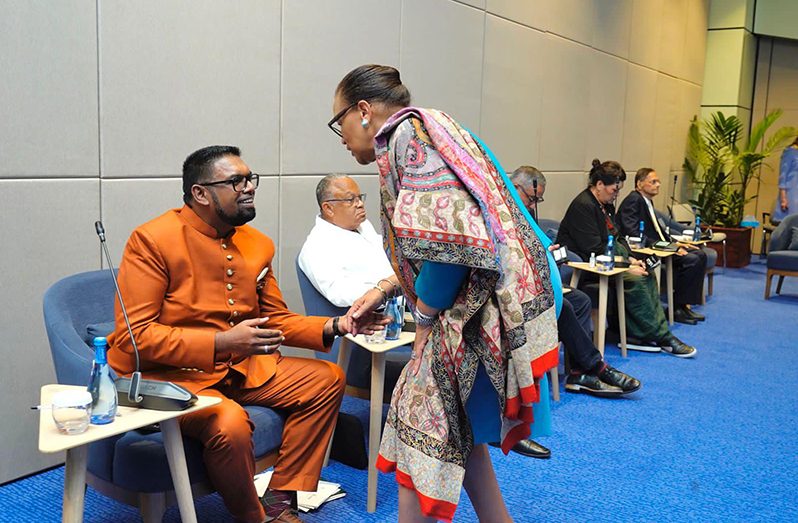By Rabindra Rooplall in Kigali, Rwanda
THE powerful 54-nation Commonwealth is backing the legal route at the International Court of Justice (ICJ) to bring a “peaceful and definitive” end to the Guyana/Venezuela border controversy.
In a communique issued in Kigali, Rwanda, at the end of their summit, the Heads of Government of the Commonwealth, which includes the United Kingdom, Canada and Australia, expressed their “full commitment” to the ongoing judicial process to bring an end to the long-standing controversy.
“Heads noted that the decision made by the ICJ on December, 18, 2020, that it has jurisdiction to entertain the application filed by Guyana on 29 March, 2018, paving the way for the ICJ to consider the merits of the case concerning the Arbitral Award of the 3, October 1899,” the communique stated.
Guyana is seeking to obtain a final and binding judgment that the 1899 Arbitral Award, which established the location of the land boundary between then British Guiana and Venezuela, remains valid and that the Essequibo region belongs to Guyana and not Venezuela.

The Commonwealth heads noted that Guyana had submitted its Memorial on March 8, 2022, in accordance with the schedule set by the ICJ to hear the case concerning the validity of the Arbitral Award of 1899 and the related question of the definitive settlement of the land boundary between the two countries.
“Heads reaffirmed their firm and unwavering support for the maintenance and preservation of the sovereignty and territorial integrity of Guyana,” the communique stated.
Venezuela has been saying for the longest while that it is not interested in having this matter resolved by the court and, the country remains seemingly bent on arbitrarily laying claim to Guyana’s territory, with its naval forces intruding on Guyana’s maritime space.
Increased activity by Venezuelan naval vessels and other forces in Guyana’s Exclusive Economic Zone (EEZ) started after Venezuela’s President Nicolás Maduro issued a decree claiming Venezuela’s sovereignty and exclusive sovereign rights in the waters and seabed adjacent to Guyana’s coast, west of the Essequibo River.

A peaceful conclusion to its border controversy with Venezuela remains Guyana’s aim, but with the opposing state insisting on aggression, Commander-in-Chief of the armed forces and President of Guyana, Dr Irfaan Ali, has affirmed that his nation will not cower in the face of threats against national security.
Venezuela earlier this month objected to the decision of the ICJ that it has the right to hear and determine Guyana’s argument for a final settlement of the controversy.
This means that the court must suspend hearing the merits of Guyana’s case until it fleshes out and decides on Venezuela’s objection.
For Guyana, Venezuela’s objection means it has joined the case, something which it did not want to do.




.png)









